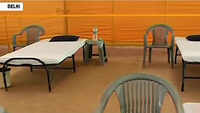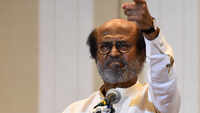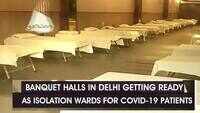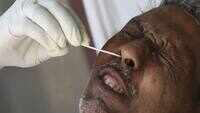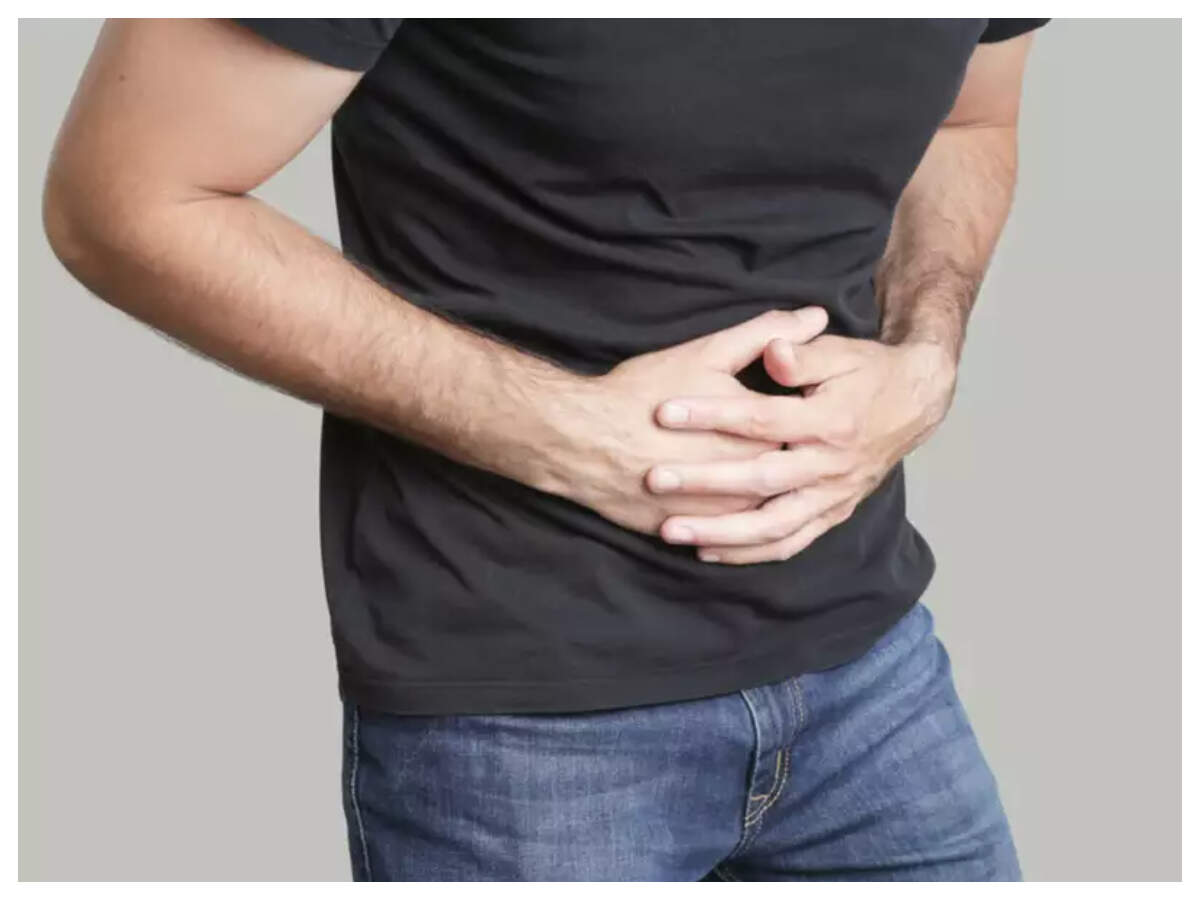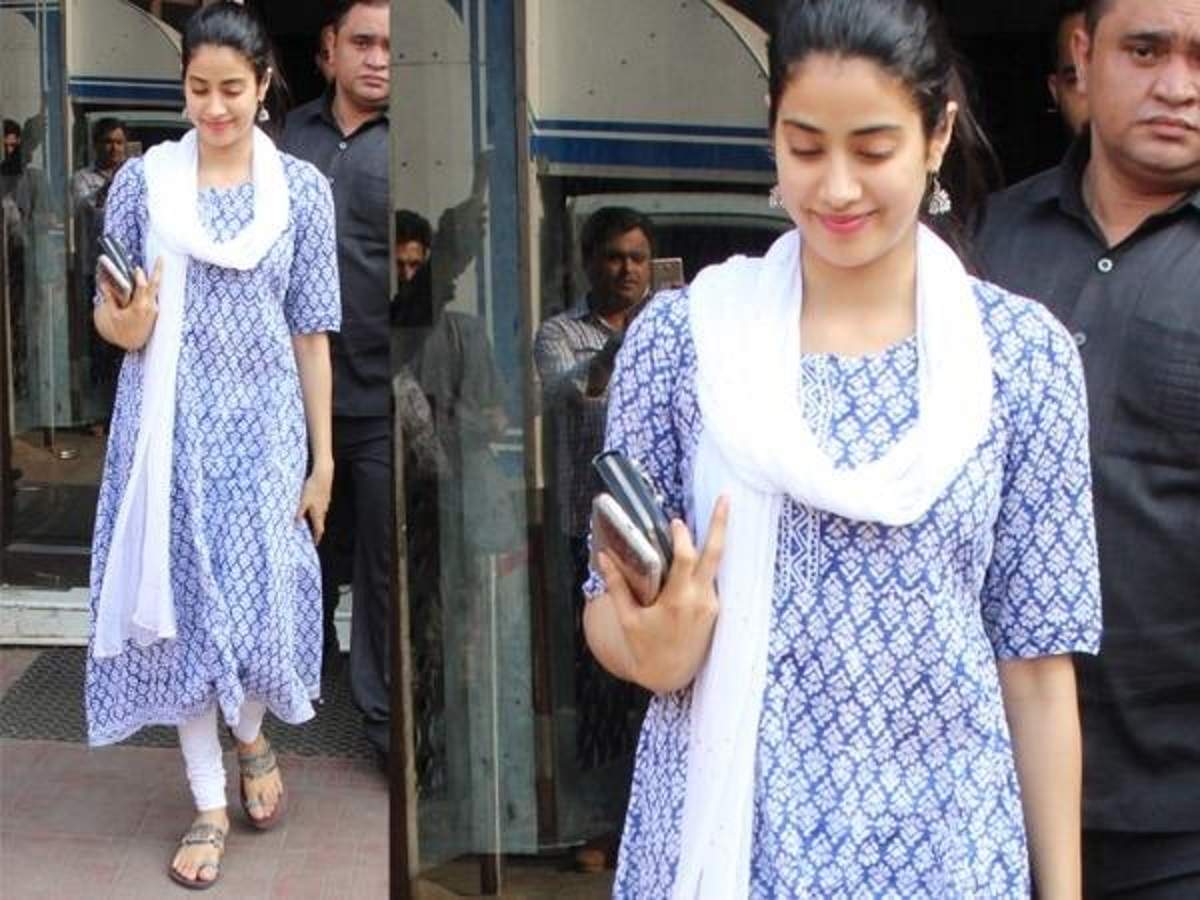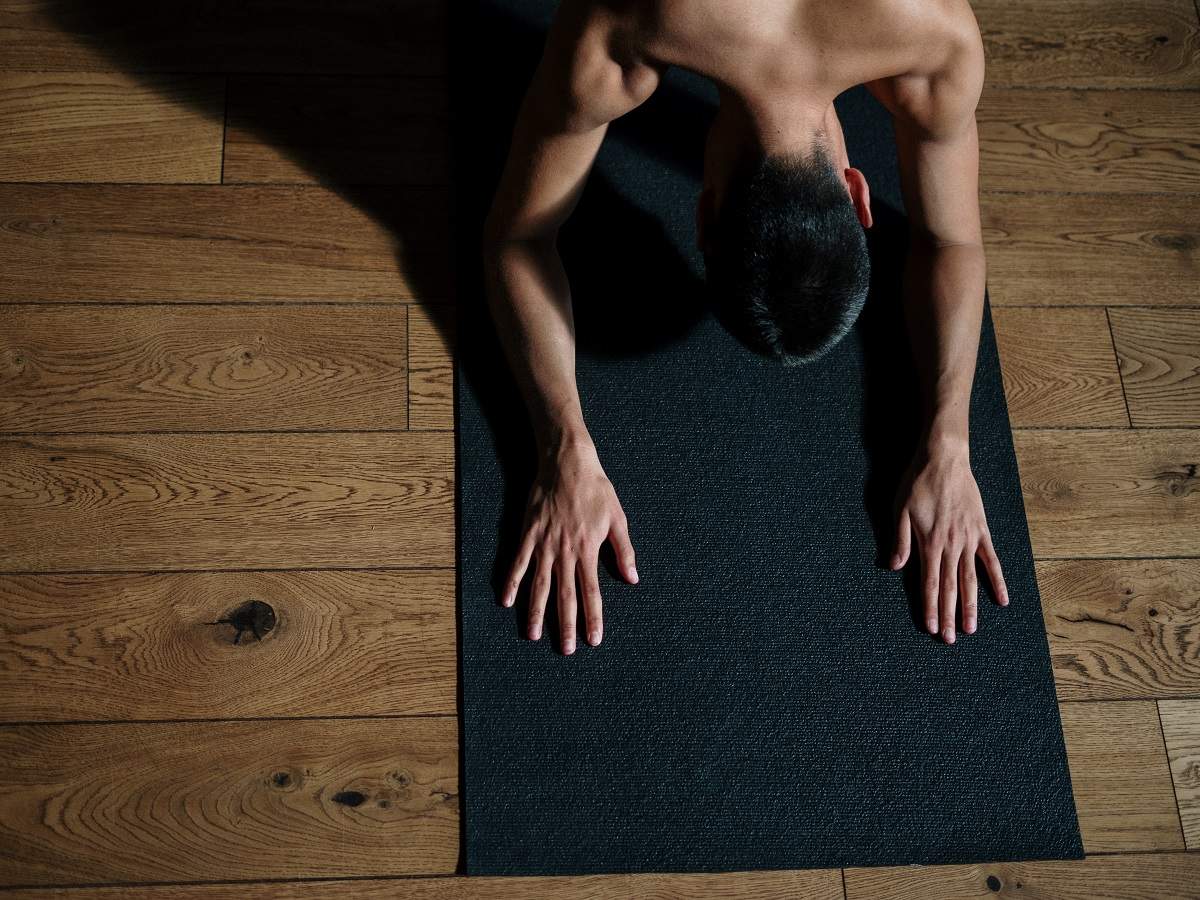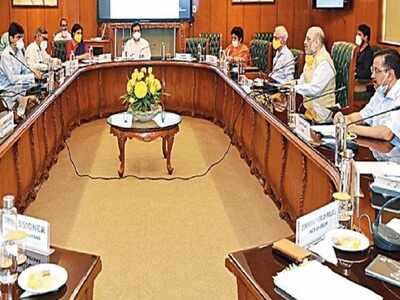
NEW DELHI: After working in silos for more than three months since the pandemic broke out, sealing borders and putting various kinds of restrictions on commuting in the process, Delhi and its neighbouring districts were told by the Centre to align strategies and fight Covid-19 as a single entity.
The message came from Union home minister Amit Shah at a meeting on Thursday in North Block that was attended by Delhi CM Arvind Kejriwal and had senior officials of the UP and Haryana governments, including the district magistrates of Gurgaon, Noida, Ghaziabad, Faridabad and Meerut in attendance, some of them via video-conference. "There is a need to work in mission mode," a home ministry statement quoted Shah as saying.
In a region that is organically connected, the message was an important first step in harmonising major administrative decisions that historically have often been at odds with each other — it’s the pandemic now, but UP and Haryana’s transport and pollution strategies, for instance, have not been in sync with Delhi’s for many years now.
At Thursday’s meeting, undertaken "in view of the close-knit structure of the region", Shah asked Haryana and UP to bring down their Covid testing rates to Rs 2,400 from Rs 4,500 as approved by the Delhi government based on the recommendation of an expert committee set up by the Centre. The UP government, later in the evening, capped RT-PCR tests at Rs 2,500. Haryana was yet to do so at the time of writing this report, but a senior official said "cheaper testing rates are likely to be implemented".
Shah also said that rates for Covid-19 beds and treatment, which were fixed by the same committee headed by Niti Aayog member V K Paul, could be applied to private hospitals across NCR after consultations.
Assuring all possible central government support, Shah noted there was a need to test more and also to identify and treat those diagnosed as positive. The home minister emphasised using rapid antigen tests approved by the Indian Council of Medical Research across the region as it would not only ramp up testing capacity but also help in early diagnosis and treatment of positive cases.
Shah also directed officials from UP and Haryana to submit information about Covid-19 beds, ventilators, oxygen cylinders, ICU beds and ambulances available with them as well as their plan to augment these resources by July 15 to the home ministry. This will help the ministry firm up a unified strategy on the pandemic for Delhi-NCR. Sources in the Haryana government said it was likely that Shah would hold a meeting with the chief ministers of Haryana and UP to further discuss the plan.
UP government sources present at the meeting said Shah was emphatic about treating Delhi-NCR as a single unit "as it is inter-connected" and had pointed out that continuing with border movement restrictions was not "practical". An official who was part of the meeting added, "We were reminded that Delhi-NCR would have to come together to fight the epidemic and not work in isolation."
A senior Haryana government official said the idea conveyed to them was "to look at NCR as a combined unit and not as different states having different districts under NCR". "All planning for the NCR districts will be done by the three different states, but together as a unit," the official added.
Haryana had "sealed" borders of NCR districts, including Gurgaon and Faridabad, with Delhi through May, allowing movement only via passes. But while Haryana has lifted the restrictions now, the border regulations continue in Noida and Ghaziabad. Noida has, in fact, had its borders under stringent curbs since April.
Asked about discussions on the border, Gurgaon’s municipal commissioner Vinay Pratap Singh said, "The flow of traffic and inter networks of businesses are such that you cannot isolate. Anything which will be decided will be decided at the NCR level and not at the state/district level."
Also discussed in the meeting with Shah was the issue of institutional isolation of asymptomatic patients, which the Supreme Court too has asked the UP government about. While institutional isolation was encouraged, authorities were left to decide what is best for them, officials said.
Health department sources in UP and Haryana said they would start using rapid antigen tests in the NCR districts. The rapid antigen tests cost Rs 450 and give results in 15-30 minutes. A positive result using this rules out the need for the standard RT-PCR test.
Police officials were asked to mount a vigil within containment zones. Officials were asked to keep up intensive contact tracing and increase surveillance in high-risk areas as well as containment zones.
A Haryana official said the home minister also lauded two models being used in Gurgaon, which he requested the Delhi CM to look at. One is the MCG’s RWA-led model to set up isolation centres within societies for residents and the centralised helpline set up by the Gurgaon administration for all Covid-related enquiries.
Asked about Haryana aligning the rates of RT-PCR tests with that of Delhi, a senior official said, "There was a discussion on the rationalisation of rates for Covid testing. ICMR has revised its guidelines and has removed the Rs 4,500 cap for testing. Cheaper rates are likely to be implemented for Covid testing in NCR districts."
The message came from Union home minister Amit Shah at a meeting on Thursday in North Block that was attended by Delhi CM Arvind Kejriwal and had senior officials of the UP and Haryana governments, including the district magistrates of Gurgaon, Noida, Ghaziabad, Faridabad and Meerut in attendance, some of them via video-conference. "There is a need to work in mission mode," a home ministry statement quoted Shah as saying.
In a region that is organically connected, the message was an important first step in harmonising major administrative decisions that historically have often been at odds with each other — it’s the pandemic now, but UP and Haryana’s transport and pollution strategies, for instance, have not been in sync with Delhi’s for many years now.
At Thursday’s meeting, undertaken "in view of the close-knit structure of the region", Shah asked Haryana and UP to bring down their Covid testing rates to Rs 2,400 from Rs 4,500 as approved by the Delhi government based on the recommendation of an expert committee set up by the Centre. The UP government, later in the evening, capped RT-PCR tests at Rs 2,500. Haryana was yet to do so at the time of writing this report, but a senior official said "cheaper testing rates are likely to be implemented".
Shah also said that rates for Covid-19 beds and treatment, which were fixed by the same committee headed by Niti Aayog member V K Paul, could be applied to private hospitals across NCR after consultations.
Assuring all possible central government support, Shah noted there was a need to test more and also to identify and treat those diagnosed as positive. The home minister emphasised using rapid antigen tests approved by the Indian Council of Medical Research across the region as it would not only ramp up testing capacity but also help in early diagnosis and treatment of positive cases.
Shah also directed officials from UP and Haryana to submit information about Covid-19 beds, ventilators, oxygen cylinders, ICU beds and ambulances available with them as well as their plan to augment these resources by July 15 to the home ministry. This will help the ministry firm up a unified strategy on the pandemic for Delhi-NCR. Sources in the Haryana government said it was likely that Shah would hold a meeting with the chief ministers of Haryana and UP to further discuss the plan.
UP government sources present at the meeting said Shah was emphatic about treating Delhi-NCR as a single unit "as it is inter-connected" and had pointed out that continuing with border movement restrictions was not "practical". An official who was part of the meeting added, "We were reminded that Delhi-NCR would have to come together to fight the epidemic and not work in isolation."
A senior Haryana government official said the idea conveyed to them was "to look at NCR as a combined unit and not as different states having different districts under NCR". "All planning for the NCR districts will be done by the three different states, but together as a unit," the official added.
Haryana had "sealed" borders of NCR districts, including Gurgaon and Faridabad, with Delhi through May, allowing movement only via passes. But while Haryana has lifted the restrictions now, the border regulations continue in Noida and Ghaziabad. Noida has, in fact, had its borders under stringent curbs since April.
Asked about discussions on the border, Gurgaon’s municipal commissioner Vinay Pratap Singh said, "The flow of traffic and inter networks of businesses are such that you cannot isolate. Anything which will be decided will be decided at the NCR level and not at the state/district level."
Also discussed in the meeting with Shah was the issue of institutional isolation of asymptomatic patients, which the Supreme Court too has asked the UP government about. While institutional isolation was encouraged, authorities were left to decide what is best for them, officials said.
Health department sources in UP and Haryana said they would start using rapid antigen tests in the NCR districts. The rapid antigen tests cost Rs 450 and give results in 15-30 minutes. A positive result using this rules out the need for the standard RT-PCR test.
Police officials were asked to mount a vigil within containment zones. Officials were asked to keep up intensive contact tracing and increase surveillance in high-risk areas as well as containment zones.
A Haryana official said the home minister also lauded two models being used in Gurgaon, which he requested the Delhi CM to look at. One is the MCG’s RWA-led model to set up isolation centres within societies for residents and the centralised helpline set up by the Gurgaon administration for all Covid-related enquiries.
Asked about Haryana aligning the rates of RT-PCR tests with that of Delhi, a senior official said, "There was a discussion on the rationalisation of rates for Covid testing. ICMR has revised its guidelines and has removed the Rs 4,500 cap for testing. Cheaper rates are likely to be implemented for Covid testing in NCR districts."

Coronavirus outbreak
Trending Topics
LATEST VIDEOS
More from TOI
Navbharat Times
Featured Today in Travel
Quick Links
Coronavirus in MumbaiCoronavirus in KolkataCoronavirus in HyderabadCoronavirus in DelhiCoronavirus in BangaloreCoronavirus symptomsCoronavirus in IndiaWhat is CoronavirusCoronavirus NewsSolar EclipseNPRWhat is NRCCAB BillCAB and NRCRTI BillPodcast newsLok SabhaShiv SenaYSRCPCongressBJP newsUIDAIIndian ArmyISRO newsSupreme Court
Get the app

